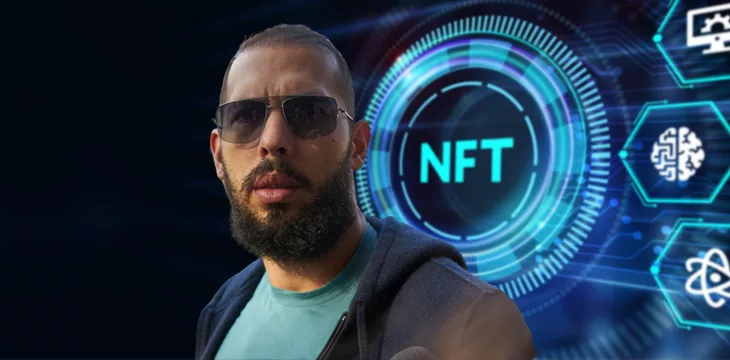|
Getting your Trinity Audio player ready...
|
Controversial influencer Andrew Tate recently took to X to remind his followers that he had called NFTs a scam back in October 2021.
Tate said NFTs proved “the entire crypto space is a scam” and that his prediction that many of these would go to zero proved he’s “never wrong.”
Is Tate right? Yes and no. When it comes to overpriced JPEGs, his statements are on the money, but to dismiss NFTs as a concept because of a few hucksters slinging overpriced ASCII art is incorrect. Let’s look into why.
On the 15th of October 2021 I tweeted:
NFTs provide further proof that the entire crypto space is a scam –
There is zero justification for spending millions on a publicly viewable JPEG besides the fact that:
1) You’re a loser
2) You understand your internet scam coins will…— Andrew Tate (@Cobratate) September 22, 2023
Most people still don’t understand the utility of NFTs
Tate is almost right when he says the “entire crypto space is a scam,” and he’s also definitely right that there was “zero justification” for spending millions on overpriced JPEGs. However, his statement that NFTs prove the entire space is a scam is incorrect.
While there have been several high-profile NFT scams, they aren’t all worthless JPEGs. There’s actual utility to non-fungible tokens that will revolutionize the world in the future. Let’s look at some examples.
NFTs can be issued to track luxury goods and verify their authenticity. For example, Gucci could issue one for each luxury bag they sell, making it possible to prove ownership and track the life cycle of such bags on the blockchain. Proving something is authentic and viewing an instantly verifiable ownership history has immense value.
NFTs can also be used to reward fans on engagement platforms like Zetly. They can be sent straight to fan’s wallets to give them special privileges like backstage passes, exclusive game access, or digital memorabilia proving they attended a historic game. An influencer like Tate could use such a platform to engage his fans and create special rewards for the most loyal—a value he seems to hold deeply.
Non-fungible tokens can represent rights for artists and creators to receive royalties each time a piece of music is played on a platform like DistroMint. They make it possible, for the first time, for everyone who collaborates on a piece of art to receive royalties in the form of micropayments forever.
Sadly, most people only see the pump-and-dump scams that almost always come about when something new is introduced into the collective psyche. The term NFT has been so badly damaged by the likes of Stoner Cats on Ethereum that another term may be necessary to get people to take a second look at them in the future.
Utility NFTs require a utility blockchain
The reason NFTs took the route they did is because the popular blockchains they exist on cannot deliver anything else. Ethereum can manage 20 transactions per second and has fees that fluctuate wildly, and various minor NFT projects have caused that blockchain to cease functioning.
For all of the use cases mentioned above to be realized, a scalable, low-fee blockchain is required—one like BSV. On this blockchain, a future where tokens like NFTs are actually useful isn’t just a hypothetical scenario—it’s a reality today. Entrepreneurs and builders like those behind Champions TCG are showing that even one million playing cards can be minted easily and at an extremely low cost. Players will then use these tokens in a fast-growing game; that’s true utility.
So, in summary, while Tate’s instincts about JPEGs being scams were correct, it’s incorrect to say that NFTs prove the entire industry is a scam. A whole world of utility is being built, but it’s necessary to scratch beneath the surface to find it. As Web3 and the metaverse become a reality with every passing day, the true use cases for NFTs will become apparent.
Watch: NFTs with utility? How about power-ups for games

 02-14-2026
02-14-2026 




